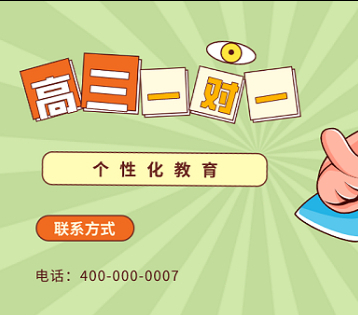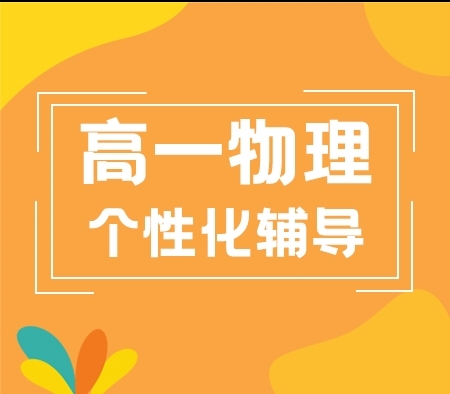2018届衡水市高三英语模拟试卷题目整理含参考答案
高考整天整天临近,这个学期也即将结束,各省市都进行了一些列的模拟考试,今天伊顿教育小编为大家整理了2018届衡水市高三英语模拟试卷题目,大家要加强练习,这样才能更加扎实得掌握知识点。在考试的时候就能得心应手。做完的同学可以点击【2018届衡水市高三英语模拟试卷题目参考答案】进行检查,看看自己错在哪里。

第I卷
第二部分 阅读理解(共两节,40分)
第一节 (共15题;每题2分,30分)
阅读下列短文,从每题所给的四个选项(A、B、C和D)中,选出较佳选项。
A
As a young woman who was always interested in style, I got lucky in interning(实习) with a fashion company in Tokyo, last summer.
I worked as an assistant in the Business Planning Department, helping with marketing for the 2007 Spring/Summer collections. Fashion is a beautiful industry. But against my expectation, it also has lots of ordinary work. Every day, I would do sample testing, prepare the brochure for future launches, and meet with customers and visitors.
Japanese companies had a traditional work style. We had a meeting every morning at 9 o'clock. Every Monday, all employees, including those in other parts of Japan, would take part in a conference call. Every afternoon, after finishing work, each of us would say goodbye to every manager in the company, which took more than five minutes.
All of this kept me fresh. And the strict work atmosphere caused me to work harder. At the end of last August, the company's 2007 Spring/Summer collection started with a big show and was very successful. Lots of customers showed an interest in our products, including a businessman from Hong Kong.
He went to our company for more details on the products, but he couldn't speak Japanese and none of the staff spoke good English.
Just when the situation seemed helpless, I offered to give it a try. I was a Japanese major, but I had also practiced my English often. My translation job was praised by both the customer and my boss. And the guest made a big purchase.
The two-month internship taught me a lot about business. And the pay - 150,000 yen, or over 10,000 yuan a month- was enough to cover my daily living costs in Tokyo.
Moreover, the experience made me stand out. Every interviewer I've spoken with showed an interest and discussed my internship with me.
And thanks to this experience, I've found a good job in one of the Big Four accounting firms and will start working this summer.
21. Before she interned(实习) in the fashion company in Tokyo, the writer ______
A. did not like the fashion.
B. imagined it being beautiful and simply.
C. didn’t expect a fashion industry had lots of work as ordinary as normal.
D. was nervous about it.
22. What would each of the employees in Japanese Companies do every afternoon?
A. They do sample testing.
B. They meet with customers and visitors.
C. They prepare the brochure for future launches.
D. They say good bye to every manager.
23. Why does the writer work harder?
A. Because she is often kept fresh
B. Because Japanese traditional strict work style causes her to.
C. Because a meeting every morning is held.
D. Because they hold a conference call every Monday.
24. What can you learn from the passage?
A. Internship usually plays an important role in finding a good job.
B. Chinese are good at English.
C. Japanese are good at spoken English.
D. And the pay the writer got was enough for her future life.
B
A Grassroots Remedy
Most of us spend our lives seeking the natural world. To this end, we walk the dog, play golf, go fishing, sit in the garden, drink outside rather than inside the pub, have a picnic, live in the suburbs, go to the seaside, buy a weekend place in the country. The most popular leisure activity in Britain is going for a walk. And when joggers (慢跑者) jog, they don’t run the streets. Every one of them instinctively heads to the park or the river. It is my profound belief that not only do we all need nature, but we all seek nature, whether we know we are doing so or not.
But despite this, our children are growing up nature-deprived (丧失). I spent my boyhood climbing trees on Streatham Common, South London. These days, children are robbed of these ancient freedoms, due to problems like crime, traffic, the loss of the open spaces and odd new perceptions about what is best for children, that is to say, things that can be bought, rather than things that can be found.
The truth is to be found elsewhere. A study in the US: families had moved to better housing and the children were assessed for ADHD—attention deficit hyperactivity disorder (多动症). Those whose accommodation had more natural views showed an improvement of 19%; those who had the same improvement in material surroundings but no nice view improved just 4%.
A study in Sweden indicated that kindergarten children who could play in a natural environment had less illness and greater physical ability than children used only to a normal playground. A US study suggested that when a school gave children access to a natural environment, academic levels were raised across the entire school.
Another study found that children play differently in a natural environment. In playgrounds, children create a hierarchy (等级) based on physical abilities, with the tough ones taking the lead. But when a grassy area was planted with bushes, the children got much more into fantasy play, and the social hierarchy was now based on imagination and creativity.
Most bullying (恃强凌弱) is found in schools where there is a tarmac (柏油碎石) playground; the least bullying is in a natural area that the children are encouraged to explore. This reminds me unpleasantly of Sunnyhill School in Streatham, with its harsh tarmac, where I used to hang about in corners fantasising about wildlife.
But children are frequently discouraged from involvement with natural spaces, for health and safety reasons, for fear that they might get dirty or that they might cause damage. So, instead, the damage is done to the children themselves: not to their bodies but to their souls.
One of the great problems of modern childhood is ADHD, now increasingly and expensively treated with drugs. Yet one study after another indicates that contact with nature gives huge benefits to ADHD children. However, we spend money on drugs rather than on green places.
The life of old people is measurably better when they have access to nature. The increasing emphasis for the growing population of old people is in quality rather than quantity of years. And study after study finds that a garden is the single most important thing in finding that quality.
In wider and more difficult areas of life, there is evidence to indicate that natural surroundings improve all kinds of things. Even problems with crime and aggressive behaviour are reduced when there is contact with the natural world.
Dr William Bird, researcher from the Royal Society for the Protection of Birds, states in his study, “A natural environment can reduce violent behaviour because its restorative process helps reduce anger and impulsive behaviour.” Wild places need encouraging for this reason, no matter how small their contribution.
We tend to look on nature conservation as some kind of favour that human beings are granting to the natural world. The error here is far too deep: not only do humans need nature for themselves, but the very idea that humanity and the natural world are separable things is profoundly damaging.
Human beings are a species of mammals (哺乳动物). For seven million years they lived on the planet as part of nature. Our ancestral selves miss the natural world and long for contact with non-human life. Anyone who has patted a dog, stroked a cat, sat under a tree with a pint of beer, given or received a bunch of flowers or chosen to walk through the park on a nice day, understands that.
We need the wild world. It is essential to our well-being, our health, our happiness. Without the wild world we are not more but less civilised. Without other living things around us we are less than human.
Five ways to find harmony with the natural world
Walk: Break the rhythm of permanently being under a roof. Get off a stop earlier, make a circuit of the park at lunchtime, walk the child to and from school, get a dog, feel yourself moving in moving air, look, listen, absorb.
Sit: Take a moment, every now and then, to be still in an open space. In the garden, anywhere that’s not in the office, anywhere out of the house, away from the routine. Sit under a tree, look at water, feel refreshed, ever so slightly renewed.
Drink: The best way to enjoy the natural world is by yourself; the second best way is in company. Take a drink outside with a good person, a good gathering: talk with the sun and the wind with birdsong for background.
Learn: Expand your boundaries. Learn five species of bird, five butterflies, five trees, five bird songs. That way, you see and hear more: and your mind responds gratefully to the greater amount of wildness in your life.
Travel: The places you always wanted to visit: by the seaside, in the country, in the hills. Take a weekend break, a day-trip, get out there and do it: for the scenery, for the way through the woods, for the birds, for the bees. Go somewhere special and bring specialness home. It lasts forever, after all.
25. What does the author say people prefer for their children nowadays?
A. Personal freedom.
B. Things that are natural.
C. Urban surroundings.
D. Things that are purchased.
26. Children who have chances to explore natural areas ________.
A. tend to develop a strong love for science
B. are more likely to fantasise about wildlife
C. tend to be physically tougher in adulthood
D. are less likely to be involved in bullying
27. What does the author suggest we do to help children with ADHD?
A. Find more effective drugs for them.
B. Provide more green spaces for them.
C. Place them under more personal care.
D. Engage them in more meaningful activities.
28. Dr William Bird suggests in his study that ________.
A. humanity and nature are complementary to each other
B. wild places may induce impulsive behaviour in people
C. access to nature contributes to the reduction of violence
D. it takes a long time to restore nature once damaged
#p#副标题#e#
C
Caught in the Web
A few months ago, it wasn't unusual for 47-year-old Carla Toebe to spend 15 hours per day online. She'd wake up early, turn on her laptop and chat on Internet dating sites and instant-messaging programs – leaving her bed for only brief intervals. Her household bills piled up, along with the dishes and dirty laundry, but it took near-constant complaints from her four daughters before she realized she had a problem.
"I was starting to feel like my whole world was falling apart – kind of slipping into a depression," said Carla. "I knew that if I didn't get off the dating sites, I'd just keep going," detaching (使脱离) herself further from the outside world.
Toebe's conclusion: She felt like she was "addicted" to the Internet. She's not alone.
Concern about excessive Internet use isn't new. As far back as 1995, articles in medical journals and the establishment of a Pennsylvania treatment center for overusers generated interest in the subject. There's still no consensus on how much time online constitutes too much or whether addiction is possible.
But as reliance on the Web grows, there are signs that the question is getting more serious attention: Last month, a study published in CNS Spectrums claimed to be the first large-scale look at excessive Internet use. The American Psychiatric Association may consider listing Internet addiction in the next edition of its diagnostic manual. And scores of online discussion boards have popped up on which people discuss negative experiences tied to too much time on the Web.
"There's no question that there're people who're seriously in trouble because they're overdoing their Internet involvement," said psychiatrist (精神科医生) Ivan Goldberg. Goldberg calls the problem a disorder rather than a true addiction.
Jonathan Bishop, a researcher in Wales specializing in online communities, is more skeptical. "The Internet is an environment," he said. "You can't be addicted to the environment." Bishop describes the problem as simply a matter of priorities, which can be solved by encouraging people to prioritize other life goals and plans in place of time spent online.
The new CNS Spectrums study was based on results of a nationwide telephone survey of more than 2,500 adults. Like the 2005 survey, this one was conducted by Stanford University researchers.About 6% of respondents reported that "their relationships suffered because of excessive Internet use." About 9% attempted to conceal "nonessential Internet use," and nearly 4% reported feeling "preoccupied by the Internet when offline."
About 8% said they used the Internet as a way to escape problems, and almost 14% reported they "found it hard to stay away from the Internet for several days at a time."
"The Internet problem is still in its infancy," said Elias Aboujaoude, a Stanford professor. No single online activity is to blame for excessive use, he said. "They're online in chat rooms, checking e-mail, or writing blogs. [The problem is] not limited to porn (色情) or gambling" websites.
Excessive Internet use should be defined not by the number of hours spent online but "in terms of losses," said Maressa Orzack, a Harvard University professor. "If it's a loss [where] you're not getting to work, and family relationships are breaking down as a result, then it's too much."
Since the early 1990s, several clinics have been established in the U. S. to treat heavy Internet users. They include the Center for Internet Addiction Recovery and the Center for Internet Behavior.
The website for Orzack's center lists the following among the psychological symptoms of computer addiction:
● Having a sense of well-being (幸福) or excitement while at the computer.
● Longing for more and more time at the computer.
● Neglect of family and friends.
● Feeling empty, depressed or irritable when not at the computer.
● Lying to employers and family about activities.
● Inability to stop the activity.
● Problems with school or job.
Physical symptoms listed include dry eyes, backaches, skipping meals, poor personal hygiene (卫生) and sleep disturbances.
People who struggle with excessive Internet use maybe depressed or have other mood disorders, Orzack said. When she discusses Internet habits with her patients, they often report that being online offers a "sense of belonging, and escape, excitement [and] fun," she said. "Some people say relief…because they find themselves so relaxed."
Some parts of the Internet seem to draw people in more than others. Internet gamers spend countless hours competing in games against people from all over the world. One such game, called World of Warcraft, is cited on many sites by posters complaining of a "gaming addiction."
Andrew Heidrich, an education network administrator from Sacramento, plays World of Warcraft for about two to four hours every other night, but that's nothing compared with the 40 to 60 hours a week he spent playing online games when he was in college. He cut back only after a full-scale family intervention (干预), in which relatives told him he'd gained weight.
"There's this whole culture of competition that sucks people in" with online gaming, said Heidrich, now a father of two. "People do it at the expense of everything that was a constant in their lives." Heidrich now visits websites that discuss gaming addiction regularly "to remind myself to keep my love for online games in check."
Toebe also regularly visits a site where posters discuss Internet overuse. In August, when she first realized she had a problem, she posted a message on a Yahoo Internet addiction group with the subject line: "I have an Internet Addiction."
"I'm self-employed and need the Internet for my work, but I'm failing to accomplish my work,to take care of my home, to give attention to my children," she wrote in a message sent to the group."I have no money or insurance to get professional help; I can't even pay my mortgage (抵押贷款) and face losing everything."
Since then, Toebe said, she has kept her promise to herself to cut back on her Internet use. "I have a boyfriend now, and I'm not interested in online dating," she said by phone last week. "It's a lot better now."
29. What eventually made Carla Toebe realize she was spending too much time on the Internet?
A. Her daughter's repeated complaints.
B. Fatigue resulting from lack of sleep.
C. The poorly managed state of her house.
D. The high financial costs adding up.
30. What does the author say about excessive Internet use?
A. People should be warned of its harmful consequences.
B. It has become virtually inevitable.
C. It has been somewhat exaggerated.
D. People haven't yet reached agreement on its definition.
31. Jonathan Bishop believes that the Internet overuse problem can be solved if people ______.
A. try to improve the Internet environment
B. become aware of its serious consequences
C. can realize what is important in life
D. can reach a consensus on its definition
D
Colleges taking another look at value of merit-based aid
Good grades and high tests scores still matter—a lot—to many colleges as they award financial aid.
But with low-income students projected to make up an ever-larger share of the college-bound population in coming years, some schools are re-examining whether that aid, typically known as “merit aid”, is the most effective use of precious institutional dollars.
George Washington University in Washington, D.C., for example, said last week that it would cut the value of its average merit scholarships by about one-third and reduce the number of recipients(接受者), pouring the savings, about $2.5 million, into need-based aid. Allegheny College in Meadville, Pa., made a similar decision three years ago.
Now, Hamilton College in Clinton, N.Y., says it will phase out merit scholarships altogether. No current merit-aid recipients will lose their scholarships, but need-based aid alone will be awarded beginning with students entering in fall 2008.
Not all colleges offer merit aid; generally, the more selective a school, the less likely it is to do so. Harvard and Princeton, for example, offer generous need-based packages, but many families who don’t meet need eligibility(资格)have been willing to pay whatever they must for a big-name school.
For small regional colleges that struggle just to fill seats, merit aid can be an important revenue-builder because many recipients still pay enough tuition dollars over and above the scholarship amount to keep the institution running.
But for rankings-conscious schools in between, merit aid has served primarily as a tool to recruit top students and to improve their academic profits. “They’re trying to buy students,” says Skidmore College economist Sandy Baum.
Studies show merit aid also tends to benefit disproportionately students who could afford to enroll without it.
“As we look to the future, we see a more pressing need to invest in need-based aid,” says Monica Inzer, dean of admission and financial aid at Hamilton, which has offered merit scholarships for 10 years. During that time, it rose in US News & World Report’s ranking of the best liberal arts colleges, from 25 to 17.
Merit aid, which benefited about 75 students a year, or about 4% of its student body, at a cost of about $ 1 million a year, “served us well,” Inzer says, but “to be discounting the price for families that don’t need financial aid doesn’t feel right any more.”
Need-based aid remains by far the largest share of all student aid, which includes state, federal and institutional grants. But merit aid, offered primarily by schools and states, is growing faster, both overall and at the institutional level.
Between 1995-96 and 2003-04, institutional merit aid alone increased 212%, compared with 47% for need-based grants. At least 15 states also offer merit aid, typically in a bid to enroll top students in the state’s public institutions.
But in recent years, a growing chorus(异口同声)of critics has begun pressuring schools to drop the practice. Recent decisions by Hamilton and others may be “a sign that people are starting to realize that there’s this destructive competition going on,” says Baum, co-author of a recent College Report that raises concerns about the role of institutional aid not based on need.
David Laird, president of the Minnesota Private College Council, says many of his schools would like to reduce their merit aid but fear that in doing so, they would lose top students to their competitors.
“No one can take one-sided action,” says Laird, who is exploring whether to seek an exemption(豁免)from federal anti-trust laws so member colleges can discuss how they could jointly reduce merit aid, “This is a merry-go-round that’s going very fast, and none of the institutions believe they can sustain the risks of trying to break away by themselves.”
A complicating factor is that merit aid has become so popular with middle-income families, who don’t qualify for need-based aid, that many have come to depend on it. And, as tuitions continue to increase, the line between merit and need blurs.
That’s one reason Allegheny College doesn’t plan to drop merit aid entirely.
“We still believe in rewarding superior achievements and know that these top students truly value the scholarship,” says Scott Friedhoff, Allegheny’s vice president for enrollment.
Emory University in Atlanta, which boasts a $4.7 billion endowment(捐赠), meanwhile, is taking another approach. This year, it announced it would eliminate loans for needy students and cap them for middle-income families. At the same time, it would expand its 28-year-old merit program.
“Yeah, we’re playing the merit game,” acknowledges Tom Lancaster, associate dean for undergraduate education. But it has its strong point, too, he says. “The fact of the matter is, it’s not just about the lowest-income people. It’s the average American middle-class family who’s being priced out of the market.”
*A few words about merit-based aid:
Merit-based aid is aid offered to students who achieve excellence in a given area, and is generally known as academic, athletic and artistic merit scholarships.
Academic merit scholarships are based on students’ grades, GPA and overall academic performance during high school. They are typically meant for students going straight to college right after high school. However, there are scholarships for current college students with exceptional grades as well. These merit scholarships usually help students pay tuition bills, and they can be renewed each year as long as the recipients continue to qualify. In some cases, students may need to be recommended by their school or a teacher as part of the qualification process.
Athletic merit scholarships are meant for students that excel(突出)in sports of any kind, from football to track and field events. Recommendation for these scholarships is required, since exceptional athletic performance has to be recognized by a coach or a referee(裁判). Applicants need to send in a tape containing their best performance.
Artistic merit scholarships require that applicants excel in a given artistic area. This generally includes any creative field such as art, design, fashion, music, dance or writing. Applying for artistic merit scholarships usually requires that students submit a portfolio(选辑)of some sort, whether that includes a collection of artwork, a recording of a musical performance or a video of them dancing.
32. With more and more low-income students pursuing higher education, a number of colleges are ________.
A. offering students more merit-based aid
B. revising their financial aid policies
C. increasing the amount of financial aid
D. changing their admission processes
33. The chief purpose of rankings-conscious colleges in offering merit aid is to ______.
A. improve teaching quality
B. boost their enrollments
C. attract good students
D. increase their revenues
34. In recent years, merit-based aid has increased much faster than need-based aid due to ______.
A. more government funding to colleges
B. fierce competition among institutions
C. the increasing number of top students
D. schools’ improved financial situations
35. What is the attitude of many private colleges toward merit aid, according to David Laird?
A. They would like to see it reduced.
B. They regard it as a necessary evil.
C. They think it does more harm than good.
D. They consider it unfair to middle-class families.
#p#副标题#e#
第二节(共5小题;每小题2分,10分)
根据短文内容,从短文后的选项中选出能填入空白处的较佳选项。选项中有两项为多余选项。
36 But still there is a danger that grows every year.Airliners get larger.Some airplanes can hold over 300 passengers.And the air itself becomes more and more crowded.If one giant airliner crashed into another in mid-air, 600 lives could be lost.
37 Air traffic controllers tell the pilot exactly when to turn, when to climb, and when to come down.The air traffic controllers around a busy airport like London-Heathrow may handle 2500 planes a day.Not al of them actually land at the airport.Any plane that flies near the airport comes under the orders of the controllers there.__73__.
Recently such a disaster almost happened.__74__.One, with 69 passengers, had come from Toronto, and the other, with 176 passengers, from Chicago, An air traffic controller noticed on his radar screen that the two planes were too close to each other.He ordered one to turn to the right and to climb.But he made a mistake.He ordered the wrong plane to do this.Fifteen seconds later it flew directly in front of the second plane.They avoided each other by the smallest part of a second.The distance between them was less than that of a large swimming pool.__75__.
A. Even a small mistake on their part could cause a disaster.
B. Two large jets were flying towards the airport.
C. Nowadays people like traveling more by air than by car.
D. Today, air travel is far safer than driving a car on a bus motor-way.
E. This is an example of the danger that grows every year.
F. In a word, air travel is more dangerous, we should choose others.
G. From the moment an airliner takes off to the moment it lands, every movement is watched on radar screen.
第三部分 英语知识运用(共两小节,45分)
第一节 完形填空(共20题;每小题1.5分,30分)
阅读下面短文,从短文后各题所给的四个选项(A、B、C和D)中,选出可以填入空白处的较佳选项。
To be a good teacher, you need some of the gifts of a good actor: you must be able to 41 the attention and interest of your students: you must be a 42 speaker, with a good, strong, 43 voice which is fully under your control: and you must be able to 44 what you are teaching in order to make its meaning clear. 45 a good teacher and you will see that he does not sit still 46 his class: he stands the whole time when he is teaching; he walks about, using his 47 , hands and fingers to help him in his explanations, and his face to express feelings. Listen to him, and you will 48 the loudness, the quality and the musical note of his voice always 49 according to what he is 50 about. The fact that a good teacher has some of the gifts of a good actor doesn't 51 that he will indeed be able to act 52 on the stage, for there are very important 53 between the teacher's work and the actor's. The actor has to speak words which he has learnt by heart' he has to repeat exactly the 54 words each time he plays a certain part; 55 his movements and the ways in which he uses his voice are usually 56 beforehand. What he has to do is to make all these carefully learnt words and actions seem 57 on the stage.
A good teacher 58 in quite a different way. His students take an active part in his 59 : they ask and answer questions; they obey orders; and if they don't understand something, they will say so. The teacher therefore has to suit his act to the needs of his students. He cannot learn his part by heart, but must 60 it as he goes along.
41. A. payB. hold C. give D. know
42. A. clear B. slow C. quick D. loud
43. A. frightening B. exciting C. fearing D. pleasing
44. A. act B. talk C. say D. repeat
45. A. Listen B. Watch C. Look D. Observe
46. A. for B. behind C. before D. with
47. A. tongue B. words C. sound D. arms
48. A. hearB. see C. think D. guess
49. A. making B. changing C. expressing D. giving
50. A. talking B. thinking C. hearing D. saying
51. A. tell B. expressC. show D. mean
52. A. good B. badly C. well D. actively
53. A. things B. differences C. points D. jobs
54. A. different B. same C. above D. following
55. A. just B. never C. everD. even
56. A. read B. known C. fixed D. written
57. A. natural B. real C. false D. clear
58. A. is B. has C. works D. teaches
59. A. group B. party C. class D. play
60. A. invent B. discover C. teach D. continue
第II卷
第二节(共10小题;每小题1.5分,15分)
阅读下面材料,在空白处填入适当的内容(1个单词)或括号内单词的正确形式。
Rudolph Valentino was a famous film star in the 1920s.
He once wanted to buy a particular silver ring that had a semi-precious stone in 61
The jeweler warned him against the ring, 62 (tell) him that it had a curse on it. 63 owned the ring would have bad luck.
Valentino did not believe him 64 he bought the ring.
He wore it during the making of his 65 film, The Young Rajah. The film was a complete failure.
Valentino put the ring 66 _ and went on to make many 67 (success) films. By 1926, he had forgotten all about the curse on the ring.
He wore it 68 . Soon afterwards, he fell ill and died. 69 of Valentino’s friends inherited the ring.She, too, became ill, 70 quickly gave the ring away to a young artist. She recovered from her illness almost immediately.
#p#副标题#e#
第四部分 写作(共两节,35分)
第一节 短文改错(共10小题;每小题1分,10分)
假定英语课上老师要求同桌之间交换修改作文,请你修改你同桌写的以下作文。文中共有10处语言错误,每句中较多有两处。每处错误仅涉及一个单词的增加、删除或修改。
增加:在缺词处加一个漏字符号(∧),并在下面写出修改后的词。
删除:把多余的词用斜线(\)划掉。
修改:在错的词下画一横线,并在该词下面写出修改后的词。
注意:1. 每处错误及修改均仅限一词。
2. 只允许修改10处,多者(从第11处起)不计分。
Dear Sally,
Now I’d like to tell you something about my part-time job this summer vacation, of which I worked like a guide in a travel
agency.The work was interesting but tired. I think it was helpful to work this holiday. It was the first time that I have earned
money on my own.I’ve come to understand how hard my parents work to support for the family. I used to keep on ask them for
money, but now I’ll never waste money and learn to share worry with my parent. I've learnt how to get along well with others.
What's worse, I've gained some working and social experience and I have learnt something can' t be learnt from textbooks. All
these will be good for my future. In a word, I had the wonderful and valuable summer vacation.
Yours,
Li Bing
第二节 书面表达(25分)
假如你是李华,下一届亚洲冬季运动会将在你居住的城市举办,现在正招募志愿者,你希望成为其中一员。请按要求用英语给组委会写一封申请信。
[写作内容]
1. 个人情况:年龄、性别、学历
2. 个人条件:英语好、爱好体育、善于交往、乐于助人、熟悉本地情况
3. 承诺:提供较佳服务,展现青年志愿者的风采。
[写作要求]
只能使用5个句子表达全部的内容,信的开头和结尾已给出,不计入考查范围内。
[评分标准]
句子结构的准确性,信息内容的完整性和连贯性。
Dear Sir/Madam,
My name is Li Hua.
_______________________________________________________________________________________________________________________________________________ ______
Please consider my request, and I’m looking forward to your early reply.
Yours faithfully,
Li Hua
- 热门课程
- 热门资讯
- 热门资料
- 热门福利
-
 黄河小班课人数多吗?教学效果怎么样?黄河小班课之前就有家长和学生想要了解过,今天为了满足大家的要求,小编就来好好给大家解答一下关于黄河小班课的一些内容,让大家能够更加方便地做出选择。 一、黄河小班课人数多吗? 黄河小班课的人数控制得挺讲究,既不是那种三五个人的微型小组,也不会像其他学校那样挤着四五十个人,一个班大概在6到15人
黄河小班课人数多吗?教学效果怎么样?黄河小班课之前就有家长和学生想要了解过,今天为了满足大家的要求,小编就来好好给大家解答一下关于黄河小班课的一些内容,让大家能够更加方便地做出选择。 一、黄河小班课人数多吗? 黄河小班课的人数控制得挺讲究,既不是那种三五个人的微型小组,也不会像其他学校那样挤着四五十个人,一个班大概在6到15人 -
 “白驹过隙”怎么读?到底有什么含义?“白驹过隙” 是形容时光的经典表达,可你真能笃定 “驹” 字读 “jū” 而非 “jú”?而且 “白驹” 为何是 “白色的小马”,“过隙” 又特指什么缝隙? 一、“白驹过隙”怎么读? “白驹过隙”的正确读音是bái jū guò xì,“白驹”指白色的骏马,常被引申为太阳的光芒或飞速流逝的时
“白驹过隙”怎么读?到底有什么含义?“白驹过隙” 是形容时光的经典表达,可你真能笃定 “驹” 字读 “jū” 而非 “jú”?而且 “白驹” 为何是 “白色的小马”,“过隙” 又特指什么缝隙? 一、“白驹过隙”怎么读? “白驹过隙”的正确读音是bái jū guò xì,“白驹”指白色的骏马,常被引申为太阳的光芒或飞速流逝的时 -
 博大单招在文化课提升方面优势如何?补习效果好吗?单招相信第一次接触的家长和同学们有很多问题都不了解,很多家长为了让孩子更好地学习就去选择一个合适的单招补习,那么博大单招在这方面的优势到底怎么样?能不能帮助孩子更好地提升呢?今天我们就来一起好好了解一下。 一、博大单招在文化课提升方面优势如何? 博大单招在文化课提升这方面那真的是研究得透透的
博大单招在文化课提升方面优势如何?补习效果好吗?单招相信第一次接触的家长和同学们有很多问题都不了解,很多家长为了让孩子更好地学习就去选择一个合适的单招补习,那么博大单招在这方面的优势到底怎么样?能不能帮助孩子更好地提升呢?今天我们就来一起好好了解一下。 一、博大单招在文化课提升方面优势如何? 博大单招在文化课提升这方面那真的是研究得透透的 -
 “琨玉秋霜”怎么读?到底有什么含义?“琨玉秋霜” 中的“玉” 和 “秋霜” 都是自带高洁感的意象,可 “琨” 字到底读 “kūn” 还是 “hún”?单看字面像在描绘玉石与秋霜的景致,却猜不透为何要将这两种事物组合,更不清楚它的核心指向是写景、咏物还是喻人。今天咱们先把读音校准,再拆解这四字里藏着的纯粹与庄重。 一、“琨玉秋霜”
“琨玉秋霜”怎么读?到底有什么含义?“琨玉秋霜” 中的“玉” 和 “秋霜” 都是自带高洁感的意象,可 “琨” 字到底读 “kūn” 还是 “hún”?单看字面像在描绘玉石与秋霜的景致,却猜不透为何要将这两种事物组合,更不清楚它的核心指向是写景、咏物还是喻人。今天咱们先把读音校准,再拆解这四字里藏着的纯粹与庄重。 一、“琨玉秋霜”
-
 2022高考英语基础知识点!西安伊顿老师带你了解!2022高考英语基础知识点!西安伊顿老师带你了解!高中的英语是一个需要长期积累以及记忆的科目,在高考中只有针对这些知识进行一定的了解和积累,才可以在考试中取得好成绩。针对这种情况,小编请到了西安伊顿老师来给大家总结归纳一下关于高考英语基础知识点的记忆内容,希望对大家有所帮助。对于英语还是需要靠日
2022高考英语基础知识点!西安伊顿老师带你了解!2022高考英语基础知识点!西安伊顿老师带你了解!高中的英语是一个需要长期积累以及记忆的科目,在高考中只有针对这些知识进行一定的了解和积累,才可以在考试中取得好成绩。针对这种情况,小编请到了西安伊顿老师来给大家总结归纳一下关于高考英语基础知识点的记忆内容,希望对大家有所帮助。对于英语还是需要靠日 -
 关于“呐喊与行动那个更重要”的辩论稿写作指导!一直以来,辩论稿的写作都是大家司空见惯的,但是也是很多同学容易忽视的。现在的语文作文考察的范围和广度越来越大,涉及到的文体也越来越多,因此大家在备考语文作文的时候,还是要增加自己的知识面,增加自己的见识。辩论稿大家见得比较多,但是在语言文字上以及结构上的学习,还是非常值得探究的,下面小编给大家分享了一则辩论稿,大家可以练习一下。
关于“呐喊与行动那个更重要”的辩论稿写作指导!一直以来,辩论稿的写作都是大家司空见惯的,但是也是很多同学容易忽视的。现在的语文作文考察的范围和广度越来越大,涉及到的文体也越来越多,因此大家在备考语文作文的时候,还是要增加自己的知识面,增加自己的见识。辩论稿大家见得比较多,但是在语言文字上以及结构上的学习,还是非常值得探究的,下面小编给大家分享了一则辩论稿,大家可以练习一下。 -
 “直播带货”有关的作文写作指导!立意和审题指导!高中的作文写作更多的是来自于社会现象的思考,或者生活的思考,所以高中的同学在写作文的时候可以从生活细节入手,寻找素材,因为任何题目都是取之于生活,进而引发的一系列的思考行为。本次伊顿教育小编给大家分享的这篇作文也是一个社会现象的评述,材料内容是关于“直播带货”,这个大家都是不陌生的,而且有的同学也是参与者,所以对于此也是非常的熟悉的。下面我们可以来看看这篇作文写作的指导。
“直播带货”有关的作文写作指导!立意和审题指导!高中的作文写作更多的是来自于社会现象的思考,或者生活的思考,所以高中的同学在写作文的时候可以从生活细节入手,寻找素材,因为任何题目都是取之于生活,进而引发的一系列的思考行为。本次伊顿教育小编给大家分享的这篇作文也是一个社会现象的评述,材料内容是关于“直播带货”,这个大家都是不陌生的,而且有的同学也是参与者,所以对于此也是非常的熟悉的。下面我们可以来看看这篇作文写作的指导。 -
 2021年9月山水联盟高三开学联考数学试卷及答案(原版)!2021年9月山水联盟高三开学联考已经结束,伊顿教育小编给大家整理了本次联考的数学试卷以及答案,各位相关的小伙伴可以参考一下。对于高三的学习,小编建议大家在每一次的考试之后,都能够仔细的分析一下自己的失分点,对于自己没有掌握的知识点可以尽早的掌握。
2021年9月山水联盟高三开学联考数学试卷及答案(原版)!2021年9月山水联盟高三开学联考已经结束,伊顿教育小编给大家整理了本次联考的数学试卷以及答案,各位相关的小伙伴可以参考一下。对于高三的学习,小编建议大家在每一次的考试之后,都能够仔细的分析一下自己的失分点,对于自己没有掌握的知识点可以尽早的掌握。


















 All right reserved
All right reserved
